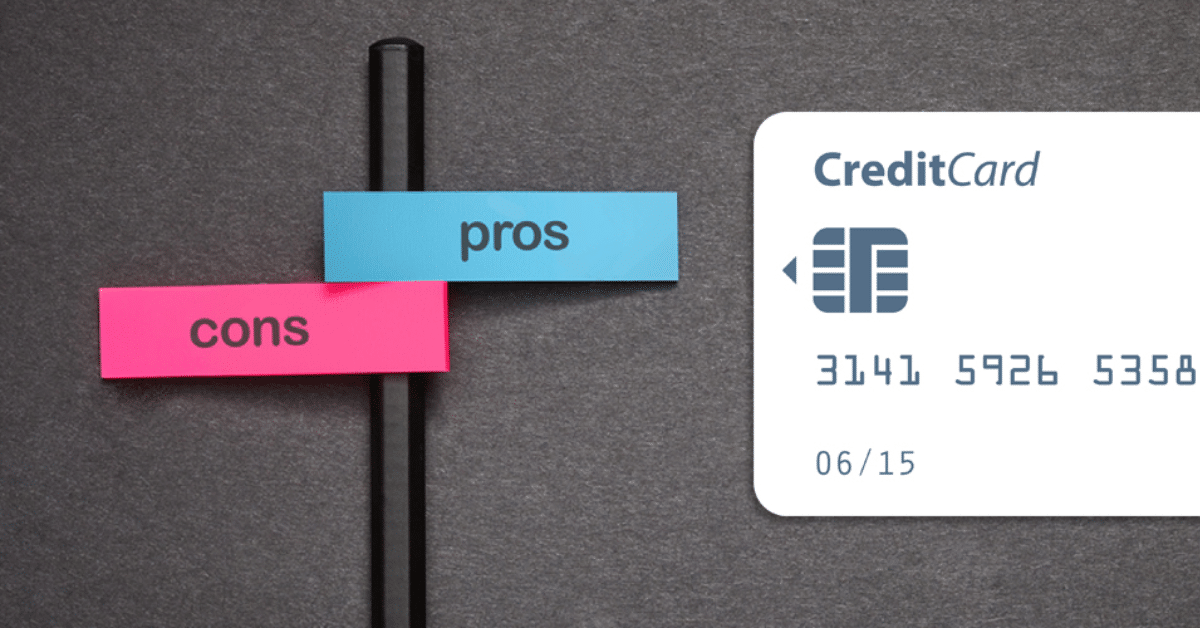Using credit cards can be both beneficial and detrimental to one’s financial well-being. On the one hand, credit cards can provide a convenient way to make purchases and can also help establish credit history. Additionally, many credit cards offer rewards, such as cashback or travel points, for using the card. On the other hand, it is easy to overspend with a credit card and rack up high balances and interest charges. It’s important to use credit cards responsibly and keep track of spending to avoid falling into debt.

Pros of using credit cards include:
Building credit history: Responsible use of credit cards can help establish a positive credit history, which can be beneficial when applying for loans or other forms of credit in the future. By making on-time payments and keeping balances low, credit cards can help improve credit scores.
Rewards and benefits: Many credit cards offer rewards such as cash back, travel points, or other perks for using the card. Some credit cards offer cashback on purchases, other offer travel rewards, and some offer discounts on certain merchants.
Protection against fraud: Credit card companies often provide fraud protection, so if your card is lost or stolen, you may not be held liable for any unauthorized charges.
Emergencies: Credit cards can provide a source of funds in case of an emergency. They can be used to cover unexpected expenses or to pay for emergency travel.
Purchase protection: Some credit cards offer purchase protection, which means that if the item you bought with your credit card is lost, stolen, or damaged within a certain period of time, you may be able to get a refund from the credit card company.
Renting a car: Some credit cards offer rental car insurance coverage if you use the card to pay for the rental. This can save you money on rental car insurance and provide extra protection.
Cons of using credit cards include:
High-interest rates: Credit cards often have high-interest rates, which can lead to significant debt if balances are not paid off in full and on time.
Temptation to overspend: It can be easy to overspend with a credit card, leading to high balances and interest charges.
Fees: Some credit cards come with annual fees, balance transfer fees, or other charges that can add up over time.
Impact on credit score: Late or missed payments can have a negative impact on your credit score.
Risk of identity theft: Carrying a credit card increases the risk of identity theft. The risk of identity theft is a concern when using credit cards. Identity theft occurs when someone uses your personal information, such as your credit card number, without your permission to make unauthorized purchases or open new accounts.
Bottom line:
The bottom line is that credit cards can be a useful financial tool if used responsibly, but they can also lead to financial trouble if not managed carefully. By paying off balances in full and on time, keeping track of spending, and only using credit for necessary expenses, the benefits of credit cards, such as convenience and rewards, can be enjoyed without incurring significant debt. However, if one is not able to manage their credit card usage, it is best to avoid using credit cards entirely.
